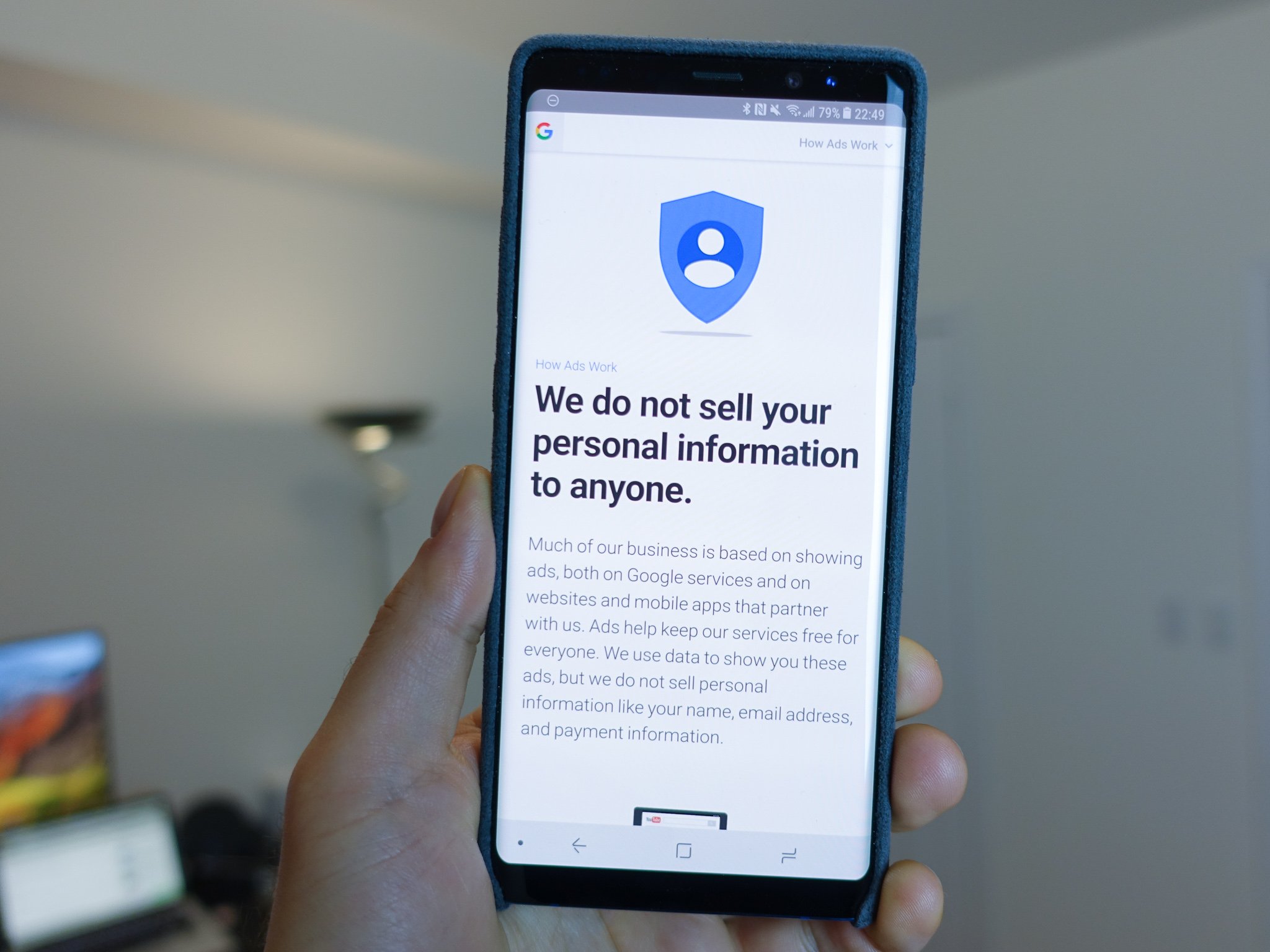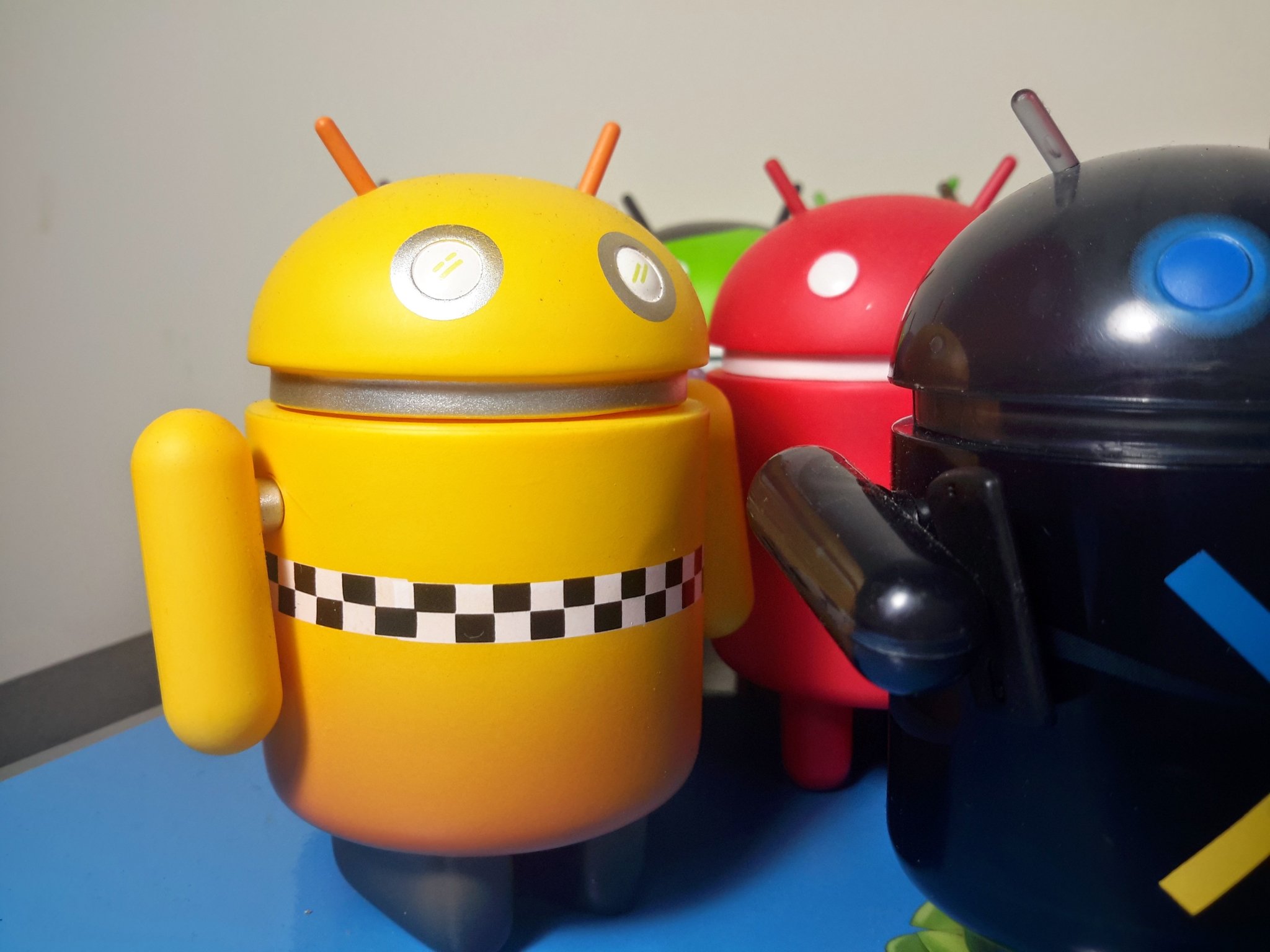Everyone focuses on the easy target when it comes to companies using your personal information, but it's important to remember that it's not just a Facebook thing.
Yes, it's time for another post about Facebook, your privacy, and how everything is bad and makes us all want to hashtag things.
This time, I'm not railing on Facebook for the company's vampiric harvesting of human dignity (I couldn't resist) and instead want to remind us all that Facebook's not alone when it come to reaping our personal information. And unfortunately neither is the company's poor data handling practices.
There's a good chance you're using an Android phone to read this or at least have one in your pocket. That means you're very familiar with a company that collects a copious amount of user data, even if you don't know it. That company is, of course, Google.
 But it sure takes a lot of it.
But it sure takes a lot of it.
Google collects far more data about me than I am comfortable with, and I'm the type who reads all the small print and takes the time to opt out of things I think aren't of benefit to me. Still, Google collects things like web history, search history, usage data for Chrome and Android and plenty of other seemingly useless information. That's how the company makes its money.
Google has a clear and understandable document that says the what, how, and when about data collection.
But Google does two things that make me willing to share enough information for services like Google Assistant work: it tells me what it collects and what it does with it, then the company keeps to its word. Chances are that one day there will be a serious data breach on a Google server, but I'm confident that it won't be because Google doesn't care how my information is handled. I like that the company seems to be transparent about data collection and that it is willing to spend millions to keep my data secure once it has it.
Unfortunately, not every company is as diligent or as transparent. That becomes an issue when you consider that every single thing you do on every smartphone provides personal information to some company. The manufacturer of your phone collects tons of data, the companies that make the apps you use collect plenty of your data, and even the company that provides you with service is out to grab everything it can about you.
![]() The Facebook logo is 2018's wanted poster.
The Facebook logo is 2018's wanted poster.
We saw that Facebook partnered with a slew of phone makers so that when users logged in on a phone, both Facebook and the manufacturer got a bunch of information about them and their friends. Huawei was singled out for its partnership with Facebook (because someone with a bit of power in the U.S. government hates Huawei) but the company wasn't given anything that companies like HTC and Samsung weren't.
Find Friends! Twitter would like to view your contacts. NOPE. NOPE. NOPE.
I know from a short stint with a BlackBerry 10 device (BlackBerry was also one of Facebook's data sharing partners) how this worked — signing into Facebook let it plunder your address book and share information in many directions. That information included everything from date of birth to political and religious affiliations, as long as that information was shared on Facebook to begin with.
And this isn't a Facebook thing, either. Services like Twitter and LinkedIn do the same thing and we all have seen those apps ask if we want them to rifle through our contacts to make some experience "better" for us. They don't bother to tell you that better for you also means everything about you that can be learned through your phone is being kept on a server somewhere. That goes double when you see something like Flipboard Briefing or BlinkFeed as part of the operating system. If you're asked to sign into a thing, that thing is collecting your data. Full stop.
I have a little test question I always ask myself whenever I see something in a terms of service agreement about taking my data: Does this thing offer me enough benefit to give away what it is asking for?
Make sure what you're getting is worth it.
The answer to that question is going to be different for everyone. I give my information to Google so I can use Google Assistant. I meticulously go through Windows 10's settings and stop the data collection wherever I can. You might prefer Cortana and would do the exact opposite. Or maybe you like both and are OK giving to both companies, or don't use either and just say no at every turn.
The important thing to remember is that every time you are going to use something new that's connected to the internet, you need to read and see what you're giving away and decide if it's worth it.


Tidak ada komentar:
Posting Komentar